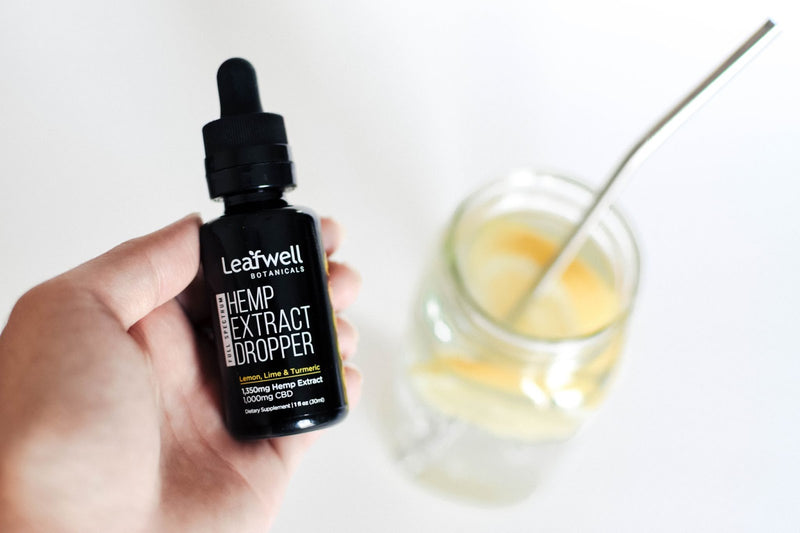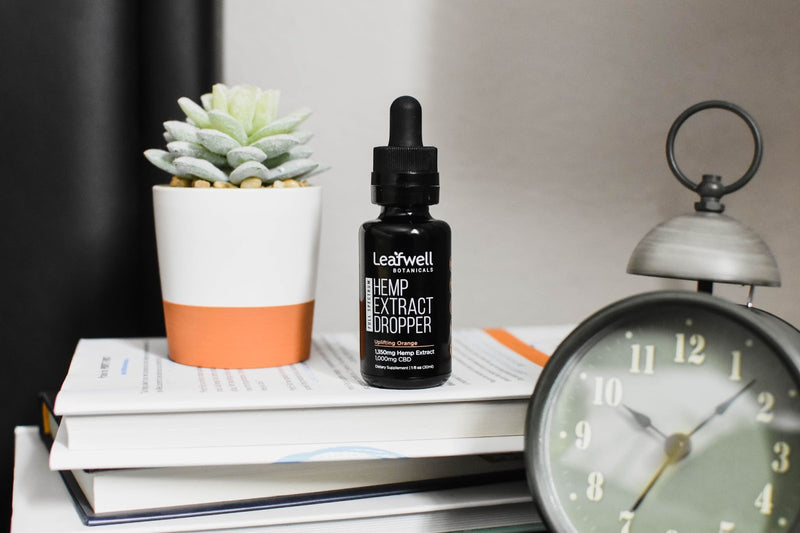Nut Butters: Which is the Healthiest?
Whether you spread it on toast, bake it into cookies, toss a spoonful into your oatmeal, or pump up the flavor of your protein shakes with it, nut butter can be a delicious and nutritious part of your diet. It used to be that conventional peanut butter was the only readily available option, but people like variety. Manufacturers have responded by creating other types of nut butter to impart new flavors and offer different nutritional options to the hungry public.
While many nut butters are healthy, not all nut butters are created equal and these new infused nut butters with several additional ingredients are an easy opportunity for brands and manufacturers to sneak in less than ideal ingredients. Understanding the nutritional benefits of different types of nut butters and learning to read the nutrition or supplement facts can help you make a wise (and yummy) choice.
What Makes a Nut Butter Healthy?
If you’re on the hunt for the good stuff, you want a nut butter that’s packed with protein, healthy fats, and nutrients.
Your nut butter should be a good source of protein. The best way to determine if something is a good source of protein is to determine how many of its calories come from protein. One gram of protein contains four calories, as does one gram of carbohydrates. One gram of fat contains nine calories. Use this information to your advantage.
Healthy Fats
At 190 calories per serving and 16 grams of fat, your fat is 144 of those calories. If there are no added oils in your peanut butter, this means that all of that fat is the fat that naturally occurs in the peanuts. These natural fats are the kind of fats your body needs, which means your nut butter is a valuable source of fat.
Nutrient Content
Be on the lookout for calcium, potassium, iron, vitamin E, magnesium, and fiber in your nut butters. You should get a modest boost of each. Nut butters that are weaker in nutrients generally contain fewer nuts, more sugar, and more oil. Check the other ingredients to see if the nutrients of your nuts have been diluted.
Checking the Ingredients

Taking a look at the ingredients is one of the best ways to tell whether or not something is good for you. Something loaded with unnecessary or artificial ingredients, “natural flavors,” sugar alcohols, etc., will never be as beneficial to your body as a whole food. There should be a good reason why every ingredient is on the list, and none of them should hide behind labels like artificial or natural flavors. If you’re scratching your head, it’s almost always a bad sign (though not always so if you’re unsure, ask).
Unnecessary Oils
Many companies add things like palm oil to keep their peanut butters from separating. This is bad for a few different reasons. First, palm oil is tied to very widespread deforestation globally destroying the habitats for many animals around the world, are processed oils that are loading your nut butter with saturated fats, and are just an unnecessary ingredient because if you’re concerned about separation you should just mix your nut butter when you first get it and then refrigerate it.
When possible, choose nut butters made with oils that benefit your body. Coconut-derivedMCT oil provides your body with valuable fatty acids, making it preferable to most alternatives.
Added Sugar
Added sugar very quickly takes something healthy with nutritional benefits and turns it into something unhealthy that you shouldn’t be eating. The whole purpose of added sugar is to make things taste sweeter (better taste for most people’s palettes). It adds empty calories to everything you eat with no benefit and causes insulin spikes. Nuts are naturally savory and tasty on their own, and if you’re looking for something sweet, there actually are healthy alternatives for sugar. For example, monk fruit is an excellent alternative sweetener that contains no calories, is safe to consume, has no aftertaste, and does not cause any gastrointestinal discomfort like some of the other alternatives.
Animal Derived Ingredients
If you live a vegan lifestyle, you’re likely avoiding nut butters that contain animal-derivedingredients, which include sweeteners (i.e., honey), supplements like collagen (and many others), and potentially “natural” or artificial flavors that don’t disclose how they’re derived.
Almond Butter
Almond butter packs about seven grams of protein per serving. It’s naturally rich in vitamin E, magnesium, calcium, and iron all the while having a welcoming savory flavor. Almond butter can essentially go with everything, and it’s easy to incorporate it into recipes. If you want mild nut butter, almond butter is going to be your best bet.
Almond butter is a popular alternative for people who are allergic to peanuts but not tree nuts. Some almond butter manufacturers make their nut butters in peanut-free facilities specifically for this reason though even when made in the same facility as peanut butter if the manufacturer takes the proper precautions it is safe.
The only complaint when it comes to almond butter for most people is it’s cost, especially if you’re looking to eat certified organic. It can be 2-5x the cost of peanut butter which makes it inaccessible for some.
Peanut Butter

Peanut butter is the tried and true classic, and if it ain’t broke, don’t fix it. Peanut butter is a versatile ingredient with a distinctive taste. It goes with ice cream, cookies, bananas, and brownies, among many many other foods. It also goes with spicy peppers and limes to create Thai sauces, sauces for Chinese stir-fries, and a base for Indian curries. Not many ingredients are as multifaceted as peanut butter.
Peanut butter has up to 8 grams of fat per two-tablespoon serving. You’ll also enjoy a little boost of potassium, calcium, vitamin E, iron, and niacin.
As for protein, if your peanut butter contains 190 calories per serving (which is the average), eight grams of protein, and 16 grams of fat, you can easily work out the calories. Your protein, at four calories per gram, is 32 of those calories.
With a nutritional profile this great, who wouldn’t want to use peanut butter for every meal? Adults love it, kids love it, and even dogs love it. Everyone wins when you have a jar of peanut butter in the pantry or refrigerator.
Pistachio Butter
Pistachio butter is slowly gaining traction, and it deserves attention. Raw pistachio butter is slightly lower in calories than other nut butters, but offers just as much protein. Pistachios are jam-packed with healthy monounsaturated fats as well as iron, calcium, and potassium with every serving.
The downsides? Pistachio is a very strong earthy flavor with some floral notes. It’s a taste that people either love or hate. Pistachios are also more difficult to grow and harvest than other nuts. Like almonds, when compared to peanut butter, you may spend as much as three times per ounce.
Cashew Butter
Cashew butter is full of magnesium, potassium, vitamin K, and calcium, but it usually contains just a little less protein than other nut butters. Coming in at around 6 grams per serving, it’s still a great source of protein.
The only downside with cashew butter is that it’s lacking in the fiber department compared to the other nut butters, containing about half the fiber of peanut butter. If you’re looking to feel full for longer, the combination of healthy fats and fiber is important. Cashew butter may not have enough to keep you satiated until your next meal.
Hazelnut Butter
That chocolate hazelnut stuff that tastes really good (good ol’ Nutella) on everything is technically a nut butter. Unfortunately, it’s made with your tastebuds and not your health in mind. It’s best to skip this one for daily use, reserving it for special occasion desserts.
Pure hazelnut butter (or one made with clean ingredients), on the other hand, is a slightly different story. Hazelnut butter has a stronger taste than peanut butter or almond butter and pairs well with cacao, cinnamon, and other natural but delicious ingredients. As always, the key is to be on the lookout for the additional ingredients that can really make this unhealthy.
Pure hazelnut butter is lower in protein than other kinds of nuts. You’ll get a small protein kick and a little bit of fiber, but it comes at the same caloric content as sweetened peanut butter for an identical serving size. If you’re looking for maximum dietary benefits from nut butter, this one is not going to be it.
The Takeaway
Incorporating nut butter into your diet is a great idea, as long as you’re choosing ones without added unhealthy fats, added sugars, flavors, or any other unsavory ingredient such as “natural” or artificial flavors. Look for nut butters with higher protein contents and small boosts of vital nutrients.
If you’re looking for a versatile nut butter that you can use for more than just sweet snacks and get the best bang for your buck, peanut butter is going to be your best bet. Peanut butter can be deliciously added to almost any meal, whether it’s sweet, savory, or spicy.
Leafwell Botanicals makes a peanut butter that offers even more benefits than traditional nut butter. Our peanut butter is formulated with organic peanuts, organic coconut-derived MCT oil, pink Himalayan sea salt, and hemp-derived CBD. Enjoy the health benefits of nuts in conjunction with the wellness benefits of CBD, just by making yourself a tasty smoothie, a delicious slice of toast, or some vegetable curry. It doesn’t get any easier than that!
Sources:
https://www.healthline.com/health/ways-to-avoid-hydrogenated-oil
https://www.aaaai.org/conditions-and-treatments/library/allergy-library/tree-nut-allergy
https://www.tasteofhome.com/collection/savory-peanut-butter-recipes/






